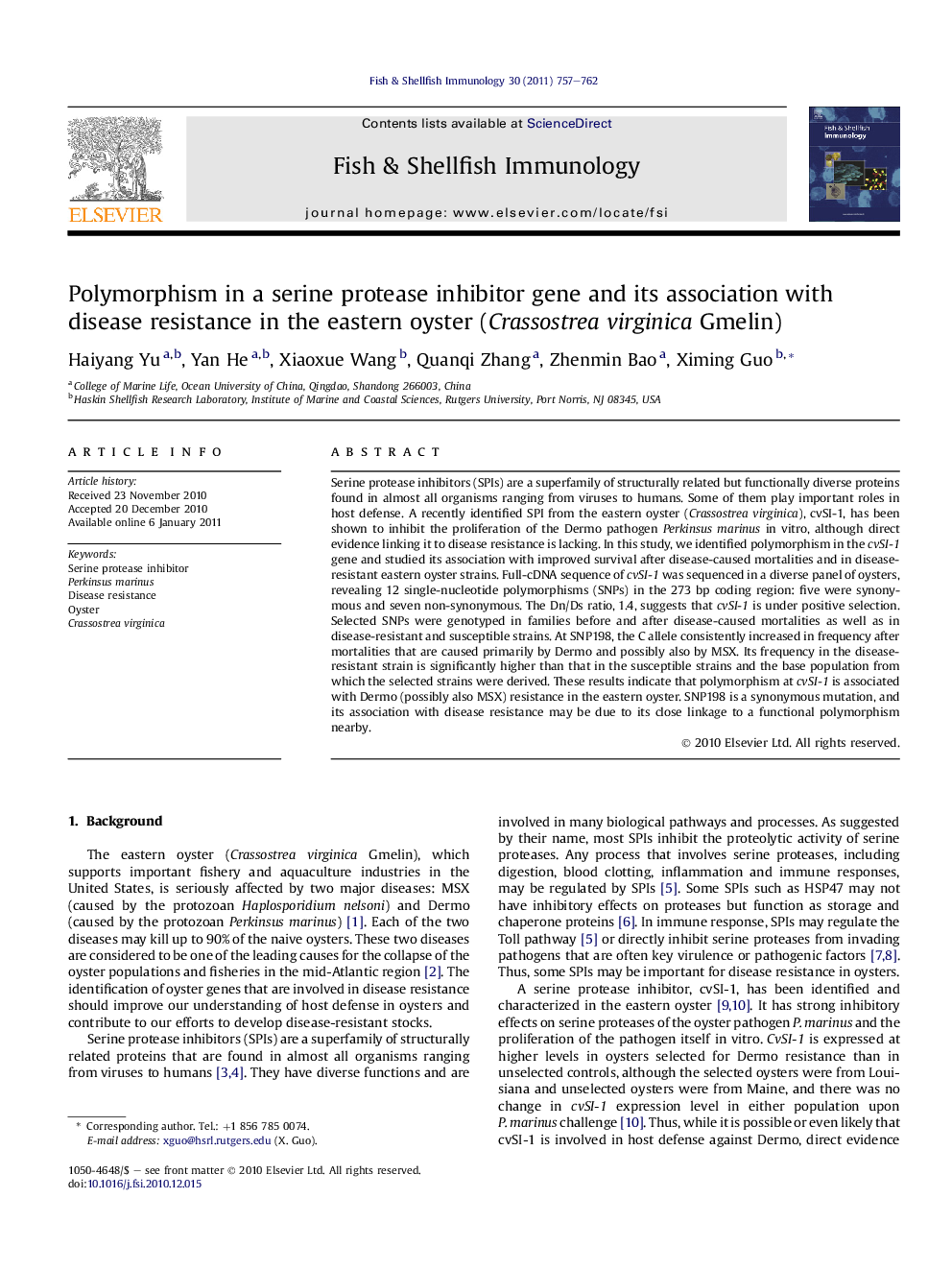| Article ID | Journal | Published Year | Pages | File Type |
|---|---|---|---|---|
| 2432608 | Fish & Shellfish Immunology | 2011 | 6 Pages |
Serine protease inhibitors (SPIs) are a superfamily of structurally related but functionally diverse proteins found in almost all organisms ranging from viruses to humans. Some of them play important roles in host defense. A recently identified SPI from the eastern oyster (Crassostrea virginica), cvSI-1, has been shown to inhibit the proliferation of the Dermo pathogen Perkinsus marinus in vitro, although direct evidence linking it to disease resistance is lacking. In this study, we identified polymorphism in the cvSI-1 gene and studied its association with improved survival after disease-caused mortalities and in disease-resistant eastern oyster strains. Full-cDNA sequence of cvSI-1 was sequenced in a diverse panel of oysters, revealing 12 single-nucleotide polymorphisms (SNPs) in the 273 bp coding region: five were synonymous and seven non-synonymous. The Dn/Ds ratio, 1.4, suggests that cvSI-1 is under positive selection. Selected SNPs were genotyped in families before and after disease-caused mortalities as well as in disease-resistant and susceptible strains. At SNP198, the C allele consistently increased in frequency after mortalities that are caused primarily by Dermo and possibly also by MSX. Its frequency in the disease-resistant strain is significantly higher than that in the susceptible strains and the base population from which the selected strains were derived. These results indicate that polymorphism at cvSI-1 is associated with Dermo (possibly also MSX) resistance in the eastern oyster. SNP198 is a synonymous mutation, and its association with disease resistance may be due to its close linkage to a functional polymorphism nearby.
